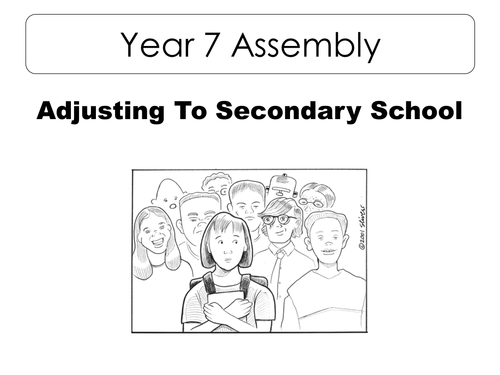
4Uploads
697Views
217Downloads
All resources

Edexcel GCSE Business Learning Journey / Plan
This is a learning journey or learning map for the Edexcel GCSE (9-1) Business course. This is a three year Key Stage 4 plan. It outlines a plan for the following;
Year 9 - Topic 1
Year 10 - Topic 2
Year 11 - Topic 1 & 2 Consolidation and Retrieval
Also makes a good display.

17 Assembly / Assemblies Key Stage 3 or Key Stage 4
All assemblies are adaptable and initially written for Key Stage 3. They all begin with a definition of the term and why it is important to them before the assembly embarks on it’s journey!
1. Adjusting to Secondary School – discusses and gives advice about the changes that will take place during secondary school
2. Confidence – aimed at helping pupils support each other with example of how negative comments can affect others
3. Respecting Property – informs pupils of the importance of looking after their surroundings and the school. Using examples of what impressions a pupil would have of an unorganised and messy teacher.
4. Friendship – aimed at supporting pupils in understanding what makes a good friend and points pupils to school clubs.
5. Litter - discusses the impact of litter and the importance of looking after the school building
6. Seeing the bigger picture – discusses the importance of focussing in all lessons, not just choosing the lessons they like, linking to transferable skills.
7. Swearing – discusses the appropriate use of language and the impressions it can make on others.
8. Keeping the Peace – aimed at pupils learning to manage friendships. Ignoring gossip and maintaining the peace.
9. Privilege – aimed at letting pupils know what a privileged position they are in to be able to access education.
10. Energy drinks – Warns pupils about the effects of drinking energy drinks, giving examples of sugar content and a case study.
11. Homework – designed to show pupils the importance of homework and the long term effects it can have on achievement – using worldwide statistics.
12. Conflict – highlights some common conflict that may arise in school with peer groups and how to cope and deal with it.
13. Bookworm – this highlights the importance of reading and promotes pupils to visit the school library. Reading will increase attainment.
14. Conduct – discusses conduct and the importance of conducting themselves in a positive manner as they preparing themselves for the next year group. (initially aimed at Year 7)
15. Easter – Discusses why we celebrate Easter and the history of why eggs are given.
16. Socialisation – assembly focusses on why the school has rules and the importance of following them. These rules help shape the person they will be as they grow into adults and move into society.
17. Memory – discusses memory and some facts, linking to what pupils can do to help their memory. Regular sleep etc. Discusses the ‘blossoming brain’ developmental stage.

Assembly / Assemblies for a term 6 weeks
Included are 6 assemblies to last a half term. Originally written for Year 7 but easily adaptable for other year groups. They include;
Friendship - What does friendship mean and how to fix them when they are broke and how to meet new people.
Adjusting to Secondary School - what is takes to integrate into secondary school, things that are different.
Seeing the Bigger Picture - Why its important to focus in every subject and how transferable skills can be used.
Confidence - What is it, how can it be reduced (low level disruption), building confidence in others.
Mobile Phones - Why are they important in society, life before phones, how they affect school life linked to studies, why they should not be used.
Energy Drinks - what are they, why were they invented, why its wrong to drink them linked to health implications, case study on girl who suffered health issues.
All files are PowerPoints with transitions and animations added. Assemblies usually taking 15 minutes.

Classroom Seating Plan.
This seating plan will come as a Microsoft Excel document. Each seat has several boxes next to it where you can place a tick to highlight if that child belongs to a certain vulnerable group; such as EAL / FSM etc. The spreadsheet will then calculate the totals for each set of students.
Room layouts differ but you will be able to drag the cells (whilst keeping all formula working) so that it mirrors your room. (if you are not confident with Spreadsheets, contact me with a layout of your room and I will adapt it for you, perhaps your school operates with different vulnerable groups).
This has been identified as excellent by senior leaders and rolled out throughout the school. It was highlighted as effective practice by Ofsted inspectors.




